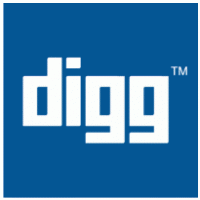
Its been a little while since my last post, but I’ve already got an update to the issue of Digg’s content theft adventure. Apparently, I wasn’t the only publisher to get upset over Digg’s use of frames on all of their content links. Within a couple days of that framing update, the search engines started updating to the switch and some of my research suggested that Google may have had a hard time with the duplicate content that started popping up. One URL of mine that had once been on Digg’s front page completely fell out of the index and a Digg.com URL took its place on the front page of Google.
Well, it didn’t take long at all for publishers or Digg to take the next steps…
Lots of discussion popped up about how to block or redirect sites that frame original content: I personally settled on this no frame plugin by Prelovac Vladimir (he’s got some great WordPress themes there, too). Some publishers set up rude anti-Digg messages on any framing attempt, and some of them even got voted up to the front page for it on other social bookmarking sites. That’s not exactly the kind of viral marketing your brand wants to attract with a new release!
Beyond the rush for publishers to protect their content from framing, there was also a lot of general complaining. Many SEOs and search marketers felt like Digg was falling back on a cheap black-hattish tactic discredited in the ’90s, and the pressure from tech & social media blogs got bad enough that Digg was anouncing plans for a second new update – a 301 redirect link for users who aren’t logged into Digg (this would include the search engines’ bots!)
The Fix is Up
Since I saw the last story on Sphinn, I’ve been checking back at Digg to see exactly how they implemented their “fix.” Trust me – I was skeptical that Digg would really react and clean up this mess. If the extra search rankings were delivering extra ad displays, they may have had a strong incentive to keep the system as it was.
Sure enough though, live links are back for anyone who isn’t signed into Digg – and the content URL I had lost ranking for is back on Google. Its not even a redirected link, just an old fashioned href (Yahoo still seems to have problems following 301s, so Digg’s implementation is a marginally good thing in my opinion)
While I’m no white hat evangelist, I do think there are basic rules of decency required to make the internet work. Chief among these is: Don’t steal unique content! If you have to re-use someone else’s content in order to make a point, provide a proper link to the original source – one that is both useful for human surfers and readable by bots.
Plenty of people won’t be happy about Digg’s “fix,” but fact is publishers are probably better off than they were this time last week. If you still don’t want your site put in frames, it just takes a small bit of code or a CMS plugin.
Alright, that’s all for my rant today – what Digg did was pretty shady, but they’re unlikely to face significant resistance now that the SEO problems associated with the Diggbar have been cleared up.

Leave a Reply